Book: This Changes Everything
mercredi 17 mai 2017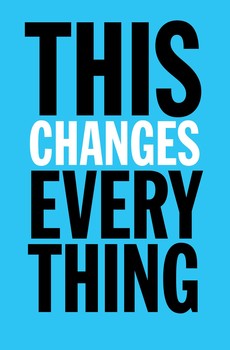 This Changes Everything, by Naomi Klein, is a book about climate change, and specifically how having a habitable planet is directly at odds with the fundamental tenets of capitalism.
This Changes Everything, by Naomi Klein, is a book about climate change, and specifically how having a habitable planet is directly at odds with the fundamental tenets of capitalism.
Capitalism is like a shark - it needs to keep moving forward or it dies. Except for capitalism moving forward means constant growth. If there is a year where the economy does not grow it is usually cause for panic. This is kind of a crazy concept to begin with - if there was a company that made the absolute best widgets in the world, and it made a billion dollars a year every year selling these widgets - it would still go out of business because it is not growing. I have thought much about why this is and my best guess is that it has to do with the stock market. Back in the old days most stocks paid dividends and when you bought a stock you were buying the future earning stream of dividends from that stock. This gave an easy and accurate way to price stocks - the present value of the dividends over however long you planned to keep the stock. However speculation has radically changed that. Most people today do not buy stock for the future dividends, they buy it because they hope the price will go up and they can sell if to someone else for more money. The reason the stock price would go up is if the company increases its earnings in the future and pays more dividends. The end result of this is that most stock trading these days is basically speculation - or gambling - that the price of the stock will go up. If the price will not go up there is no reason to buy it, most stocks don't pay even close to enough in dividends to justify their prices.
But I digress, the point was that capitalism requires infinite growth. This is why companies would rather make poor quality products that will fall apart in a few years than make good quality long-lasting products. They want their customers to have to keep buying new ones, and who cares about all of the raw materials that are used to produce them, and all of the waste generated by people throwing away disposable crap. An example from the book is oil companies, who generally want to have unused oil reserves equal to the amount they are currently extracting. If they don't, it means that they are using up their oil and will eventually run out. This thought process assumes that there is an infinite supply of oil in the ground, and if they can just keep finding it it will never run out. Of course, this assumption is at odds with the fundamental nature of the universe.
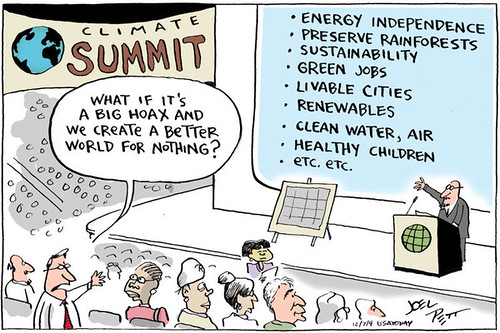 This cartoon pretty well sums up my thoughts about people who are against environmental reforms. The most common argument these days seems to be that human carbon dioxide emissions are not the cause of climate change, or don't contribute to it in a meaningful way, so we should go ahead and pollute as much as possible. While to me the thought processes that lead to this conclusion are completely insane, one should never underestimate the power of cognitive dissonance. If someone makes money for something, no matter how horrible it is, they will find a way to convince themselves that it is good, or at least tolerable. No one thinks they are evil, the really evil people think everyone else is evil.
This cartoon pretty well sums up my thoughts about people who are against environmental reforms. The most common argument these days seems to be that human carbon dioxide emissions are not the cause of climate change, or don't contribute to it in a meaningful way, so we should go ahead and pollute as much as possible. While to me the thought processes that lead to this conclusion are completely insane, one should never underestimate the power of cognitive dissonance. If someone makes money for something, no matter how horrible it is, they will find a way to convince themselves that it is good, or at least tolerable. No one thinks they are evil, the really evil people think everyone else is evil.
The most common argument for continued use of fossil fuels is that the short term economic benefit outweighs the long term harm to the planet. In an economy like ours, based on massive overconsumption, anything that threatens to reduce consumption is anathema. In today's political climate, where most of the power belongs to huge multinational corporations who would be directly effected by any reduction in consumption, such thoughts are unthinkable to any politican who wants to continue to get the corporate money that funds American politics.
Fossil fuels are very similiar to addictive drugs like heroin. They may be ruining your life and leading to your eventual death, but the quick fix is still preferable to having to go through withdrawal and detox. And now that they have medication to counteract the main side effect of prescription opiates - constipation - you can just add another pill and continue to be addicted. If that pill gives you more side effects at some point someone will invent another pill for those side effects. So instead of solving the problem you just slapping bandaids on it. Getting off of fossil fuels won't be easy, it will be extremely painful and uncomfortable for a while, but in the end it will allow the world to survive and be a better place.
Libellés:
books,
politics
Aucun commentaire
 I have read and enjoyed a couple other books by Michael Pollan, but was not expecting this one to be as enjoyable as it was. Humans tend to see ourselves as separate from nature, and mostly above nature. This book puts a little spin on that point of view by describing things from the perspective of plants. The book focuses on four plants: apples, tulips, marijuana and potatoes - and describes how those plants have taken advantage of human beings to further their own self-interest.
I have read and enjoyed a couple other books by Michael Pollan, but was not expecting this one to be as enjoyable as it was. Humans tend to see ourselves as separate from nature, and mostly above nature. This book puts a little spin on that point of view by describing things from the perspective of plants. The book focuses on four plants: apples, tulips, marijuana and potatoes - and describes how those plants have taken advantage of human beings to further their own self-interest.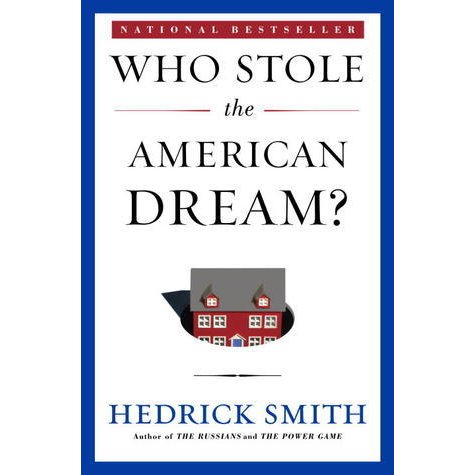 Who Stole the American Dream, by Hedrick Smith, is about exactly what you would expect. It explains how and why the wealth in the United States has become so concentrated in the hands of the few. Back in the 1950s and 60s, in what is considered by many to be the height of American prosperity, corporations would act for the benefit of all their stakeholders - their employees, their consumers, society in general. At some point the focus shifted to be on maximizing shareholder value - which means trying to maximize stock price at the expense of everything else.
Who Stole the American Dream, by Hedrick Smith, is about exactly what you would expect. It explains how and why the wealth in the United States has become so concentrated in the hands of the few. Back in the 1950s and 60s, in what is considered by many to be the height of American prosperity, corporations would act for the benefit of all their stakeholders - their employees, their consumers, society in general. At some point the focus shifted to be on maximizing shareholder value - which means trying to maximize stock price at the expense of everything else. 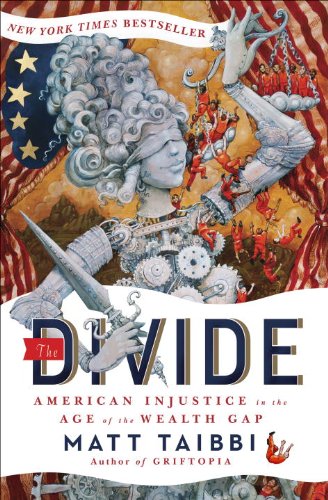 I picked up The Divide: American Injustice in the Age of the Wealth Gap, by Matt Taibbi because I was looking for another book of his, Griftopia, but I couldn't find it in English here in Switzerland. The book was about how income inequality is tied to inequality in the American justice system - specifically how the poor are jailed in huge numbers for ridiculously silly things, while the rich can literally steal billions of dollars and only get a slap on the wrist.
I picked up The Divide: American Injustice in the Age of the Wealth Gap, by Matt Taibbi because I was looking for another book of his, Griftopia, but I couldn't find it in English here in Switzerland. The book was about how income inequality is tied to inequality in the American justice system - specifically how the poor are jailed in huge numbers for ridiculously silly things, while the rich can literally steal billions of dollars and only get a slap on the wrist. 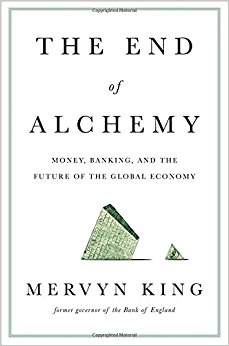 Mervyn King was the governor of the Bank of England during the 2008 financial crisis. Unlike other books about the crisis, this one does not set out to describe Mr. King as the hero who single-handedly saved the world from economic doom, and does not seek to find someone to blamde for the crisis, but instead points out inherent flaws in the banking system which led to the crisis. While Mr. King goes far beyond what one would expect from someone who held his position, for me, the conclusions he did not reach were far more telling.
Mervyn King was the governor of the Bank of England during the 2008 financial crisis. Unlike other books about the crisis, this one does not set out to describe Mr. King as the hero who single-handedly saved the world from economic doom, and does not seek to find someone to blamde for the crisis, but instead points out inherent flaws in the banking system which led to the crisis. While Mr. King goes far beyond what one would expect from someone who held his position, for me, the conclusions he did not reach were far more telling.